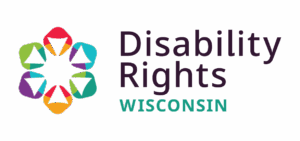View the accessible, full press release here (PDF).
June 14, 2023
Contact: Joanne Juhnke, (608) 320-6165, joannej@drwi.org
Madison, WI – The Joint Committee on Finance of the Wisconsin Legislature has rejected the opportunity to finally provide a minimally adequate level of support for Wisconsin’s 122,187 public school students with disabilities. In a budget year with billions of dollars in surplus, and public education advocates across the state united in asking for at least a 60% special education reimbursement rate, the JFC budget motion settled on a totally insufficient reimbursement rate of 33.3%. Meanwhile, the Special Needs Scholarship Program for participating private schools, which allows these schools to choose what level of disability-related needs they are willing to support, is already guaranteed at least a 90% reimbursement rate and is on track to receive an 18.1% increase in the basic voucher amount.
According to DRW Interim Executive Director Kit Kerschensteiner, “The education budget package that is currently moving forward is an affront to Wisconsin students with disabilities and the public schools that serve them. The class of 2023 has never known a year where school funding kept up with inflation, and they’ve never known a year where public-school special education reimbursement was higher than 31%. Meanwhile DRW regularly speaks to distraught parents whose students were ejected from special needs voucher program when their needs were deemed to be too great for the schools to handle, even though these schools are receiving reimbursement at over 90%. Why are these schools getting increases while public schools are left behind? This is deeply inequitable.”
Students with disabilities have the right to a free, appropriate public education, as affirmed by the federal Individuals with Disabilities Education Act (IDEA). However, those public education rights do not apply in private schools, whether a student attends private-pay or with a voucher. This proposed expansion of voucher programs would accelerate the funneling of resources away from the public schools where those rights apply. Years of Wisconsin experience have shown that voucher expansion does not result in equal choice and access to all students, but instead concentrates the students with the most significant needs into the public schools, which are the only schools required to educate students of all abilities. Private schools use vouchers to enroll students with less-intensive needs, taking much-needed public school funding along. For the sake of students with disabilities, Wisconsin must support and properly fund public schools rather than pouring more tax dollars into voucher programs.
Wisconsin has the funding to do right by students of all abilities. Our students with disabilities deserve so much better than this.

